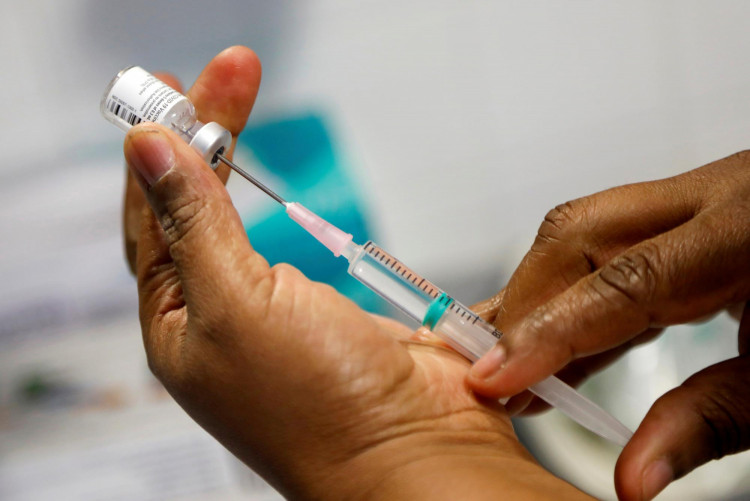A COVID-19 variant first detected in South Africa can "break through" Pfizer-BioNTech's COVID-19 vaccine to some extent, a study in Israel found.
The study, conducted by Tel Aviv University and Israeli healthcare provider Clalit, followed nearly 400 people who were partially vaccinated (one dose) or fully vaccinated (two doses).
The South African variant, B.1.351, was discovered to be eight times more prevalent among vaccinated patients. A U.K. strain, B.1.1.7, was found to be more prevalent among partially vaccinated patients, while completely vaccinated patients showed improved protection against the U.K. strain.
The study indicates that the Pfizer-BioNTech vaccine offers less protection against the South African variant than the original coronavirus. But the study is unable to reach that conclusion since it only looked at people who had already tested positive for the virus, rather than overall infection rates.
"Based on patterns in the general population, we would have expected just one case of the South African variant, but we saw eight," Professor Adi Stern, who headed the research, told The Times of Israel. "We can say it's less effective, but more research is needed to establish exactly how much."
However, since the South African variant is uncommon in Israel, the researchers cautioned that the study's sample size of people infected with it was limited.
On April 1, Pfizer and BioNTech announced that their vaccine was roughly 91% effective in preventing COVID-19, citing new trial data that included participants who had been inoculated for up to six months.
Earlier lab trials indicated that the vaccine offers some but not full protection against the virus.
While the study's findings may be concerning, Stern believes that the low prevalence of the South African strain is encouraging.
Almost 53% of Israel's 9.3 million population have had both doses of the Pfizer-BioNTech vaccine.
In recent weeks, as the pandemic seemed to be receding, Israel's economy has reopened to a large extent, with infection rates, severe illness, and hospitalizations all declining rapidly.





